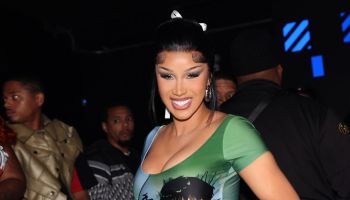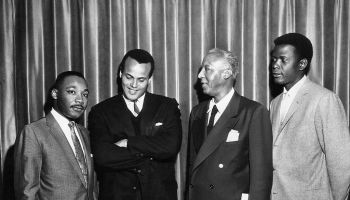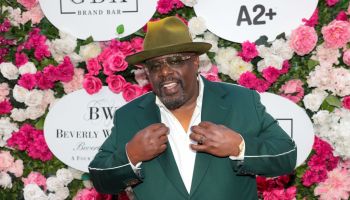AT&T #HBCUUnlimited initiative pushes for us to ‘Dream In Black’ and tap into our unlimited possibilities. At a time when things seem to be hard for African American youth, it’s important that we push young people to explore the vast world and remind them that there are no limits to their potential. Sometimes all it takes is a boost of encouragement from someone they look up to. That person can be a friend, family member or even a teacher.
When students attend HBCUs, they are often drawn to the dreams of comradery amongst students that look like them. The band, sororities, and fraternities are often highlighted as a few of the many reasons students should attend HBCUs but the unsung heroes, the professors, deserve some recognition as well.
Roland Martin visited Virginia State University in Ettrick, Virginia to speak with Dr. Leonard Githinji, assistant professor and extension specialist of sustainable and urban agriculture, about how he expands the horizons of his students.
Dr. Githinji has worked at two HBCUs prior to coming to Virginia State University to teach urban agriculture.
“Urban agriculture is any kind of agriculture, the growing of fruits, vegetables, etc, that happens within the city environment,” says Dr. Githinji. “With the population increase in the city metropolitan, we need to be able to feed those people who are challenged by a food desert. Here, we use an intense way of gardening to produce tons and tons of vegetables.”
For young African Americans who live in the inner city and are interested in agriculture, Dr. Githinji says that growing vegetables is very possible. “You can grow kale, collard, mustard greens, carrots, onions, pretty much anything you can grow,” he says.
For urban agriculture, there are unlimited possibilities to what you can do. You don’t have to have huge acres of farm land in order to have access to fresh fruits and vegetables. “You can solve the problem by having backyard gardens or patio gardens,” says Dr. Githinji.
Check out Dr. Leonard Githinji’s entire interview with Roland Martin and find out more about urban agriculture in the video above.
















